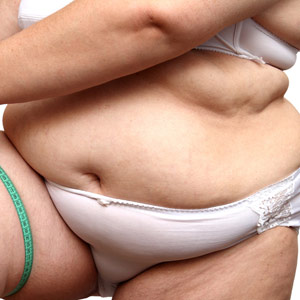
Is your fat burner working?
Constant yo-yo dieting can upset the metabolism, according to personal trainer Liz Karr. This is why women who have spent much of their adult life "on a diet" are unable to shake the kilos.
"Healthy diet that consists of five or six small meals a day is more effective than eating one or two large meals, alternating with starvation," Liz says. "By depriving the body of food you are slowing down your metabolism. To lose weight, you have to combine a focused exercise programme with a sensible eating plan. It may take longer than crash dieting, but the results are long term."
Still doing the same exercise?
The body is very good at adapting to the exercise routine you always do and, over time, becomes efficient at doing it with less energy. By switching your routine or trying a new activity, you will use more energy.
Weight training is great for toning muscles (which can add muscle mass) and boosting the metabolism, but you also need to include cardiovascular activities. Homeopathic physician and nutritional specialist Dr Brigitte Spitze states that exercise also increases the amount of lean body mass you have. The more lean body mass you have, the higher your metabolic rate, so you burn fat easier.
Water retention
Salt is not only bad for people who suffer from high blood pressure, which is common in overweight adults, but it also causes water retention. Commercial, ready-made sauces and salad dressings contain a lot of salt, as do canned foods. Carbonated cool drinks, even the diet ones, make water retention worse for some people. Watermelon is great for reducing water retention, as is (believe it or not)water itself.
Food intolerance
Food intolerance is a very important factor in weight retention, according to Dr Brigitte Spitze. "The most common food intolerance is to wheat," she says. "In my practice, many women who have been overweight for years, struggling to lose weight even on a well-balanced, low-kilojoule diet, have two problems: lowered metabolic rate and a food intolerance; usually to wheat."
Wheat contains gluten, which irritates the digestive system. Wheat is also one of the foods we eat most often: muesli, bran flakes, bread, pies, hamburgers, pizzas and instant noodles all contain wheat.
According to Brigitte, symptoms of wheat intolerance include digestive difficulties, constipation, bloating, flatulence, nausea, fatigue, cramps, depression, mood swings and food cravings. She recommends avoiding wheat completely for three weeks to see whether any of the symptoms improve and weight-loss occurs. The rule of thumb is: anything made from flour contains wheat.
So don't lose heart, bear these facts in mind and re-assess your weight loss regime accordingly.




 Publications
Publications
 Partners
Partners









